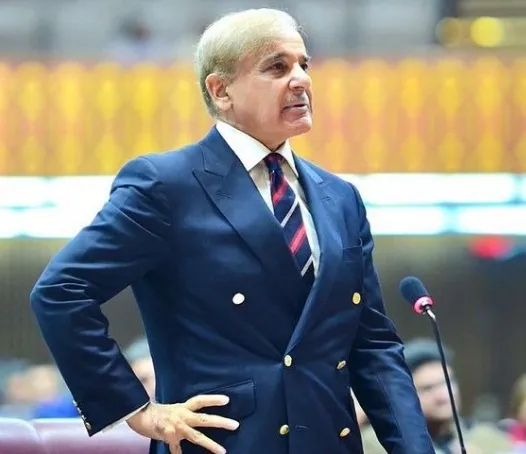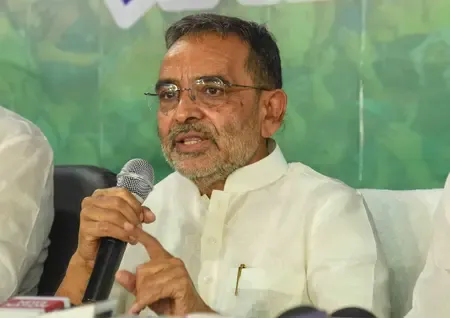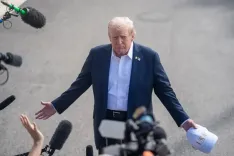Is Pakistan Navigating Between China and the US to Tackle Domestic Turmoil?

Synopsis
Key Takeaways
- Pakistan's external debt has reached $135 billion.
- It owes approximately $30 billion to China.
- Domestic scrutiny is rising over debt terms and project delays.
- The IMF has flagged significant discrepancies in trade data.
- Pakistan is expanding its international partnerships.
New Delhi, Oct 11 (NationPress) Pakistan finds itself in a precarious position, striving to weather the storm of economic and political instability at home, alongside challenging relations with neighboring countries. Until recently, it has leaned on China for immediate financial assistance and defense supplies, while the United States and other Western allies provided crucial loans and military resources.
Currently, Islamabad is attempting to strike a balance, counting on China for strategic and security matters, while seeking economic, trade, and institutional support from the US, where Washington’s influence is significant.
As of Q2 2025, Pakistan's total external debt has surged to approximately $135 billion, with Islamabad indebted to Beijing for an estimated $30 billion. China stands out as one of Pakistan’s largest bilateral creditors, offering concessional loans and financing for essential infrastructure projects in energy, transport, and ports.
However, growing public anxiety over debt conditions, delayed project implementations, and limited local industrial benefits has sparked domestic scrutiny. Recently, Khaama Press reported that the International Monetary Fund (IMF) raised alarms regarding an $11 billion discrepancy in Pakistan’s trade data over the last two fiscal years.
Import figures reported by Pakistan Revenue Automation Limited (PRAL) were $5.1 billion lower than those from Pakistan Single Window in FY2023-24, a gap that further widened to $5.7 billion in FY2024-25.
Such inconsistencies have fueled concerns about the reliability of Pakistan’s external sector statistics, prompting the IMF to call for corrective actions and a robust communication strategy to rebuild investor confidence.
In late September 2025, the IMF initiated a formal review of its $7 billion Extended Financing Facility (EFF) and $1.1 billion Resilience and Sustainability Facility (RSF), assessing performance through June 2025.
Seeking relief, Pakistan's political and military leaders are now strengthening ties with Washington, which is currently facing violent protests from hardline Islamist organizations. Recent meetings between Prime Minister Shehbaz Sharif, General Asim Munir, and Trump in Washington showcased discussions around rare earth minerals, with reports suggesting an offer for US development of a port.
Pakistan has even nominated Trump for the Nobel Peace Prize.
The ongoing protests by Tehreek-e-Labbaik Pakistan (TLP) across major cities coincide with escalating insurgencies in Balochistan and violent clashes in the former Federally Administered Tribal Areas (FATA) and Pakistan-occupied Kashmir (PoK), highlighting the federal government’s struggle to address domestic challenges.
Yet, Islamabad continues to lean on Washington for vital financial cooperation, trade facilitation, and access to multilateral support from institutions like the IMF and World Bank.
Pakistan is also forging connections with Gulf nations, Turkey, Malaysia, and Central Asian countries to diversify its avenues for trade, remittances, and energy. Following a recent defense agreement with Saudi Arabia, Pakistan is actively seeking investment from Riyadh in sectors such as health and communications.









